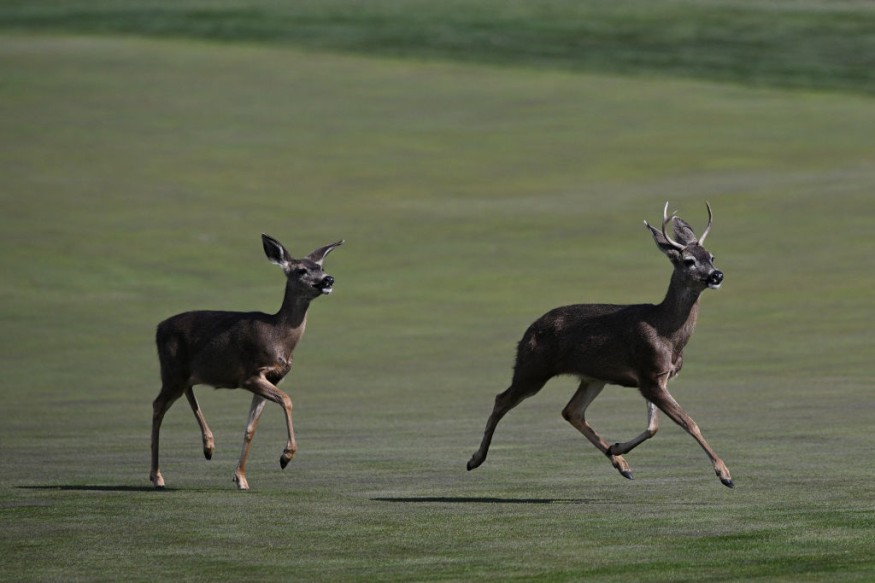The discovery of a strain of Omicron in a white-tailed deer in New York raised concerns that the 30 million deer in the United States could harbor a new strain of coronavirus, the chief researcher said on Tuesday.
Researchers at Pennsylvania State University have identified about 20 white-tailed deer on Staten Island, New York, that were infected with the Omicron strain between December 2021 and January 2022.
A spread event occurs when a highly infected population spreads a virus to another species (or specific strain) that has not previously encountered the virus, according to a report in ScienceAlert.
COVID-19 affects white-tailed deer

A USDA spokesman told the New York Times Monday that the USDA has found a coronavirus infection in white-tailed deer in 15 states.
In a study published last year, researchers at Penn State University identified the coronavirus in about one-third of the Ojilogica sampled in Iowa between September 2020 and January 2021. Another research group found the virus in one-third of the deer sampled in Ohio from January to March 2021, as per Business Insider.
Suresh Kuchipudi, associate director of the Animal Diagnostic Laboratory at Penn State said that they did not expect this kind of widespread infection.
Scientists fear that deer may serve as a reservoir of coronavirus even after the COVID 19 pandemic in humans. In the worst-case scenario, the virus can evolve in deer to better avoid vaccine protection and then spread to humans as a deadly variant. According to Sciencealert
But such a phenomenon would be unprecedented. It is difficult for new variants to overcome existing immune defenses, as most people in the United States have some protection against the virus through vaccines and natural infections.
Can animals pass omicron virus?
In addition to being highly vulnerable to infection, white-tailed deer are abundant in the US and live in close proximity to humans. So scientists have detected the virus in cats, dogs, ferrets, mink, pigs, and rabbits. But they're paying close attention to white-tailed deer.
Vaughn Cooper, the director of the Center for Evolutionary Biology and Medicine at the University of Pittsburgh stated that, "There's no evidence that there's anything special about deer biology that makes them a more worrisome host."
Cooper also added, "The major thing is that they're everywhere. They are the classic example of changes in human and animal populations brought on by civilization that promotes spillover."
Reoccurrence of infection
Scientists wouldn't hope much for the virus to die out in deer populations if ever the same deer can be infected with multiple coronavirus variants.
Suresh Kuchipudi stated that there will be a clear possibility for the continued circulation of the virus in other animals if they can find those deer are reinfected. As per Sciencealert.
Kuchipudi warned that scientists still have more to learn about whether white-tailed deer are strong reservoirs for alterations of the virus.
© 2025 NatureWorldNews.com All rights reserved. Do not reproduce without permission.





